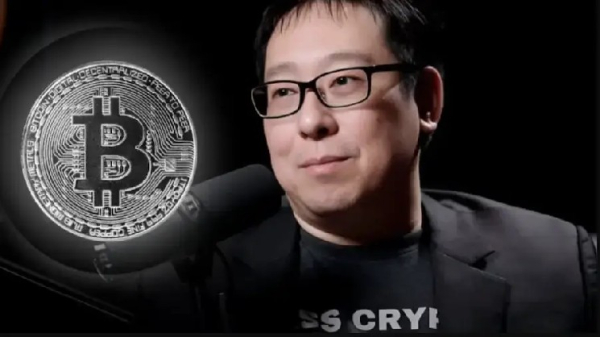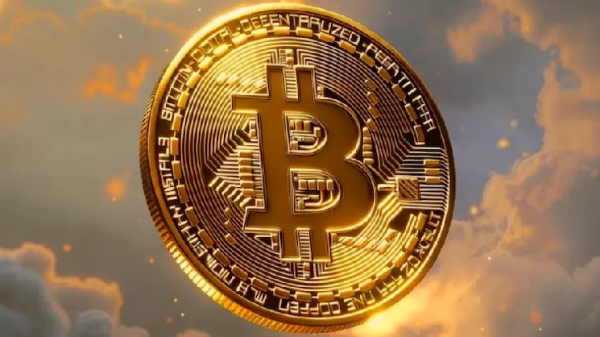Why Buffett Left Without Buying Bitcoin: How His Holding Views Cryptocurrency
 Despite the cryptocurrency's massive rise, the legendary investor has been against investing in Bitcoin for over a decade.
Despite the cryptocurrency's massive rise, the legendary investor has been against investing in Bitcoin for over a decade.
One of the richest people on the planet, 95-year-old Warren Buffett, published his final letter to Berkshire Hathaway shareholders on November 10. It marked the investor's farewell address after more than six decades at the helm of the holding company. Buffett plans to step down as Berkshire's CEO at the end of 2025, retaining his position as chairman of the board.
Buffett and his longtime associate, Berkshire Hathaway vice chairman Charlie Munger, who died in 2023 at age 99, attracted the attention of the crypto community with their harsh statements against Bitcoin. While both executives are generally opposed to cryptocurrencies, their investment thesis formed the basis for Bitcoin's promotion from its early stages .
rbc.group
Hodl Concept
“When we own shares in great businesses with great management, our favorite time is to own them forever,” Buffett told Berkshire Hathaway shareholders in 1988 when the company acquired a stake in Coca-Cola.
Berkshire still holds shares of this company and has grown tenfold since then. Buffett's “forever” essentially originated the cryptocurrency term “Hodl,” the equivalent of the traditional financial market concept of “buy and hold.” It implies a long-term passive investment strategy in which investors maintain a relatively stable portfolio over time, regardless of short-term price fluctuations.
The most prominent proponent of the Hodl strategy is the American company MicroStrategy. Led by former CEO and now Chairman of the Board of Directors Michael Saylor, the company was one of the first to publicly announce the purchase of Bitcoin in 2020. Since then, the company has accumulated over 641,000 BTC, worth over $67 billion at the November 12 exchange rate.
However, investment is only one thesis promoted by the Bitcoin community. In reality, the leading cryptocurrency has no universally accepted definition. For some, it is a payment network, for others, a source of income (for example, for miners), and for still others, a tool for improving the global economic situation by promoting transparency and the immutability of financial data (a thesis opposed to national currencies not tied to hard assets like gold).
“If you're wondering whether Bitcoin is still just an asset, the answer is no. It's both an asset and a protocol,” says Miles Sather, head of Bitcoin at Block (Block's Square payment service is developing Bitcoin-based payments).
“Never invest in a business you don't understand,” says Warren Buffett.
Perhaps due to the uncertainty, Buffett and Munger have repeatedly publicly spoken out against the leading cryptocurrency. After all, Bitcoin isn't a business or something definitive, like, say, a company stock.
Munger vs. Bitcoin
Munger has always been an opponent of digital currencies. In late 2021, he announced that he would never buy cryptocurrency and called a complete ban on cryptocurrency transactions in China a sure thing (although no such ban existed, only restrictions on speculative trading). In May of that year, the entrepreneur called Bitcoin “disgusting.” In February 2022, the investor emphasized that digital assets are valueless and called them a “venereal disease.”
In 2023, Munger noted that recently, commercial firms in the US had issued numerous cryptocurrencies for sale without any approval from government agencies. In some cases, significant volumes of tokens were transferred practically for free to individual distributors, who resold them at inflated prices.
Buffett vs. Bitcoin
Buffett has had a slightly longer relationship with Bitcoin, and is also more reserved in his statements than Munger. Shortly after the cryptocurrency's inception in 2013, Buffett was first asked about it. Back then, he simply stated that he “has no intention of switching to Bitcoin.” A year later, at a shareholder meeting, he called Bitcoin “an illusion,” insisting that “it doesn't generate cash flow and has no intrinsic value.”
In 2017, as Bitcoin's price soared, Buffett publicly denounced it again, calling it a “speculative bubble,” drawing a parallel to the “tulip mania” ( a brief surge in demand for tulip bulbs in the Netherlands in 1636–37). In 2018, his statement that “Bitcoin is rat poison to the second power” became a cult phrase in the industry, making “rat poison” the most classic sarcastic slur for Bitcoin.
Buffett's logic hasn't changed with the asset's rise in price: Bitcoin isn't a productive asset, it can't be valued, and it's incapable of generating cash flow. The guru asserts that “even if you offered me all the Bitcoin in the world for $25, I wouldn't take it.”
However, Berkshire Hathaway's history includes investments in crypto infrastructure projects. In 2021, Berkshire invested approximately $750 million in the Brazilian digital bank Nu Holdings before and after its IPO. Nu Holdings is a fintech company specializing in digital lending and financial inclusion, but after its listing, it launched services such as Nubank Crypto and a Bitcoin ETF, becoming one of the most active retail crypto platforms in Latin America. In other words, Berkshire indirectly bet on a bank engaged in the cryptocurrency business.
But this doesn't undermine Buffett's vision, which believes that returns come from corporate profits, not speculators' trading operations. It's likely that Buffett views Bitcoin neither as a company nor as an asset, but rather as a speculative play, requiring him to maintain a distance rather than participate.
Source: cryptonews.net



